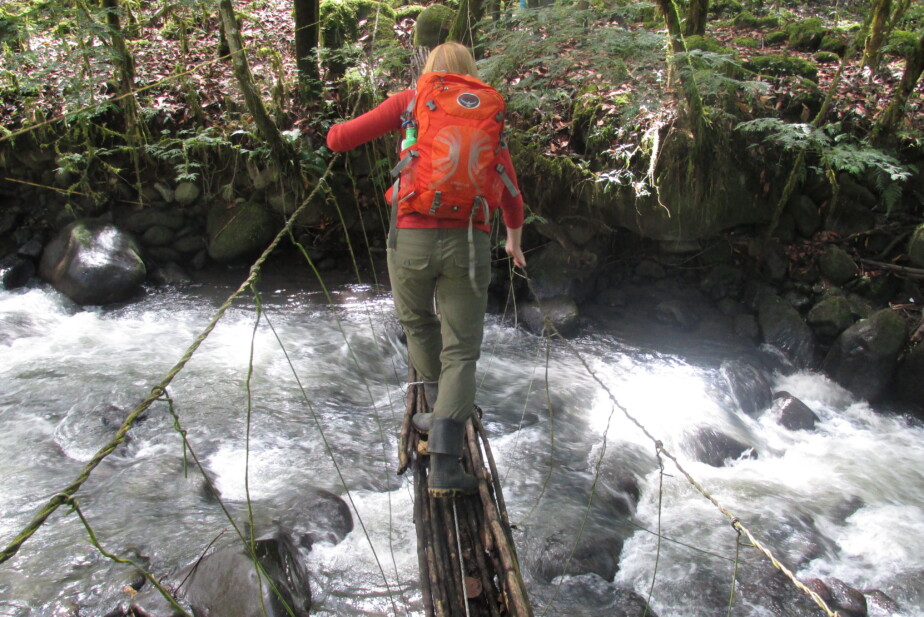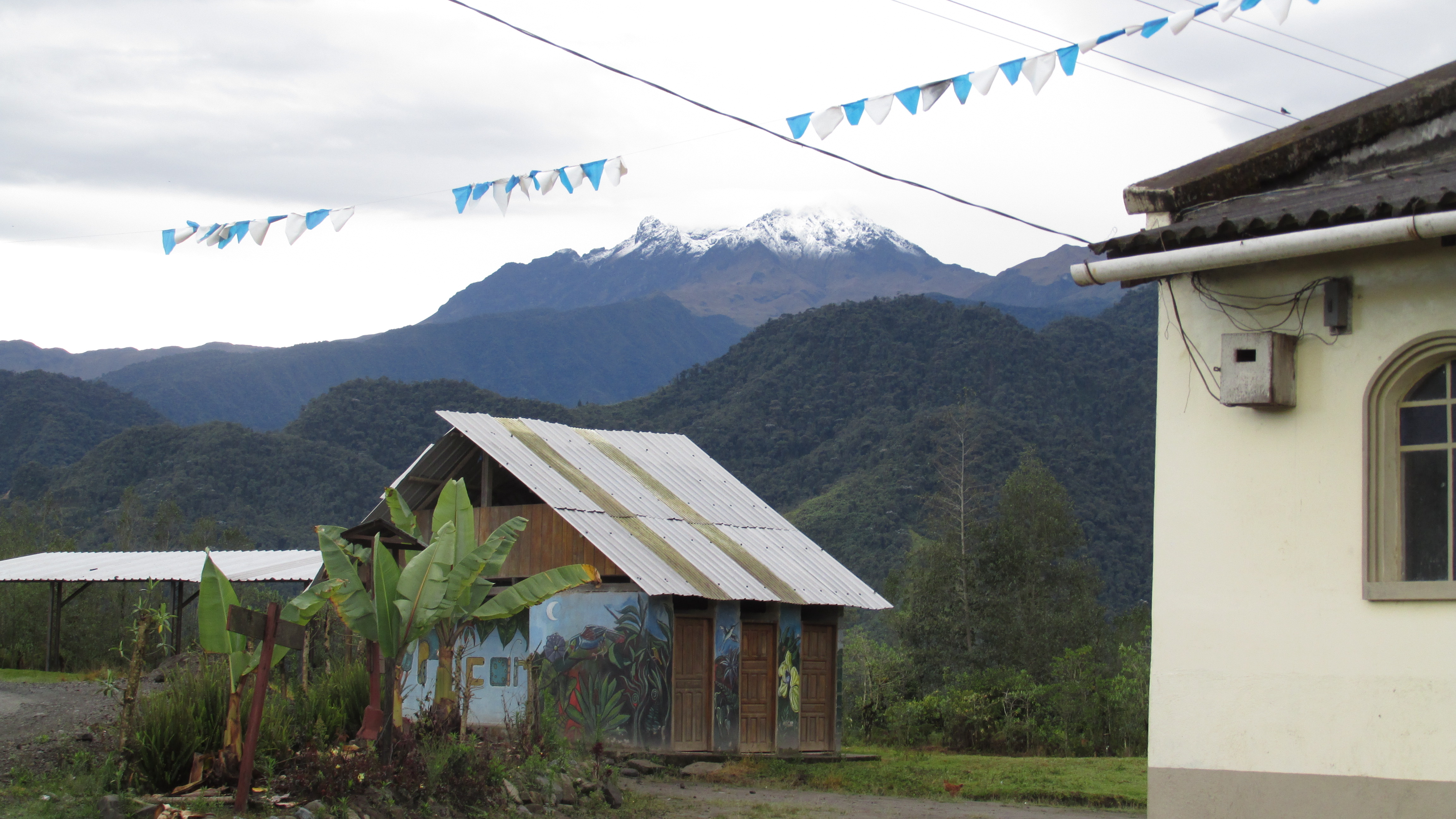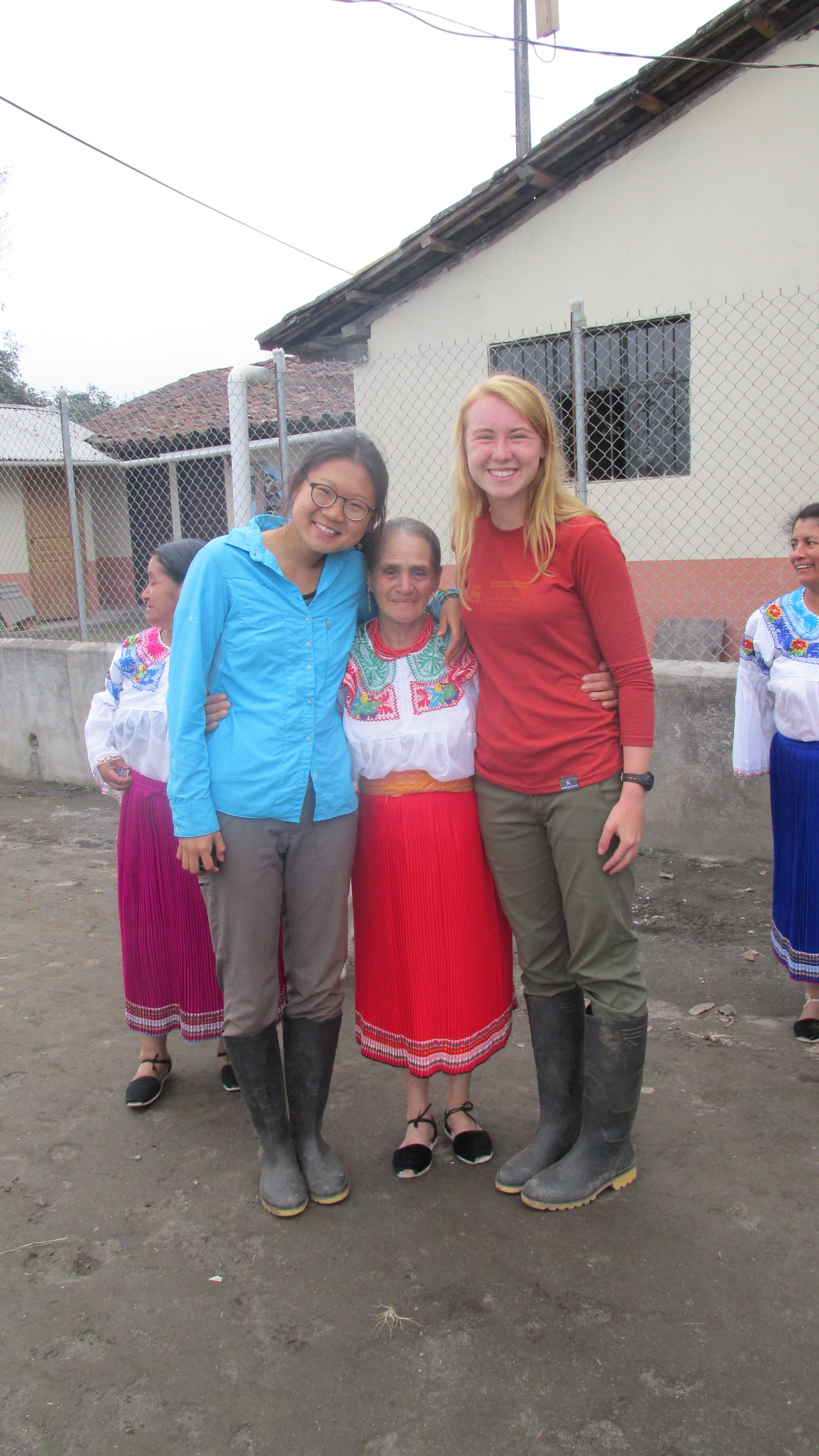
by Keely Kriho
We sat in a large circle, folding chairs haphazardly situated on a damp dirt floor, wet from the rain that had poured and sprinkled on and off for the past two days. The roof of the patio where we sat was translucent, and we could both see, hear, and feel the rain pounding down, almost too loud to hear the man who stood at the front of the room with a dry erase board, and a mission.
The man was Peter, a college professor-turned-environmental activist who currently resides–and is the President of–the town of Pucara, an old farming community of around sixty people located near the town of Apuela, on the western slope of the Andes in Ecuador. Peter had lived in Ecuador for around twenty years, and along with being the President of the community, he had worked with the community to implement a recycling project, a housing project for those who could not afford home renovation, a tourism company, a Spanish school, a coffee co-op, and a water purification project.
![IMG_0380[1]](http://globalgap.unc.edu/wp-content/uploads/sites/5882/2014/11/IMG_03801.jpg)
So now we sat in a circle on the patio of Peter´s house, trying to come to terms with the idea that the way we live in the first world is killing the rainforest and is unsustainable in general. What could we do about it?
It became apparent that Peter’s outlook on the world and its future is, in general, bleak: he showed us a graph of the increasing world population vs. the declining food supply and how these declining agricultural harvests were a result of cash cropping (planting only one type of crop over a large area) and the subsequent depletion of nutrients in the soil. Farming, he told us, had been organic since its advent, in that people would grow a variety of crops to feed themselves, and only recently did we move to this new monocropping system. By using this unsustainable farming technique–and in other ways, like mining, deforestation, etc.–we would be left without sufficient food, having destroyed the literal earth of the Earth.
So much about the reality of our global situation and pressing crises became apparent with this conversation, but along with this overwhelmingly negative information came the strong feeling of its absolute necessity to be realized and discussed. For me, it was a validation of what I’d been thinking about (or trying not to think about) for a really long time: the way that I live, using energy and food as if there were endless supplies, is not sustainable, and I am responsible for doing something about it.
And even though I had realized this more or less throughout my education, never before had I been in an environment where these ideas were discussed as hard facts and where people were really trying to live in an environmentally conscious way. Something about the way the information was presented, something about seeing Peter live successfully in this environmentally conscientious way, and also something about my age–at 18, I am an adult, now able and responsible to make my own decisions about how to exist in this world–made me think that this responsibility wasn’t something I’d be able to forget, as so often happens: as time goes by, I am able to distance myself from the information, to shirk the responsibility. And so the next step was the how part; how are we supposed to live with all this knowledge of suffering around the world and the fatal agriculture system that we rely on to provide us food?
We talked about this with Peter, about what we can do, because in the face of all these problems, it seems almost impossible to make any difference or change–and this mentality would cause the all too familiar mantra of I can’t do anything, so I won’t even try. But Peter’s favorite quote, and his response to our question, was, I don’t have the solution. There’s no easy solution. However, by example, Peter provided us with a good starting answer. Peter is a pragmatic idealist, meaning that he acknowledges the bad in things in the world but he also hopes that he can make some sort of difference in the way that he lives his life. Though trying against the odds–fighting the long defeat, as Dr. Paul Farmer would say, he has, with effort, changed his life, the lives of the people of Pucara, and all those he will affect with the projects he implements, all with the consciousness of helping to live in harmony with his environment.
![IMG_0449[1]](http://globalgap.unc.edu/wp-content/uploads/sites/5882/2014/11/IMG_04491-e1416516389785.jpg)
We do an activity at the weekly group meetings where we say things we were grateful for from the previous week, and so in the future, I hope to do the same to conclude every blog post. I am grateful for this week for many reasons, the first for not being given an out with the information that Peter presented. This sense of individual responsibility is something I hope to sustain throughout my life. One of the reasons I decided to take this gap year was because I felt that I didn’t have a good enough sense of the person I wanted to be going into college, and without that, I wouldn’t be able to take full advantage of all the ways college offers independence and specialized education. And by no means do I feel totally ready, even after this realization of one facet of the way I want to change the way I live. But I feel educated in a new way, so that I know at least part of how I want to live my life: doing my part in helping to create a solution to a problem that has no easy solution.
Other things I’m grateful for:
Rain soccer! Though my shoes are soaked through, it was an amazing time, played on a soccer field with a backdrop of the Andes.

My host mom, Magdalena, who is amazing at crocheting and who performed a traditional dance for our Despesida (goodbye party).

The Despesida in general: playing fun games and getting to hear the local musicians play.
